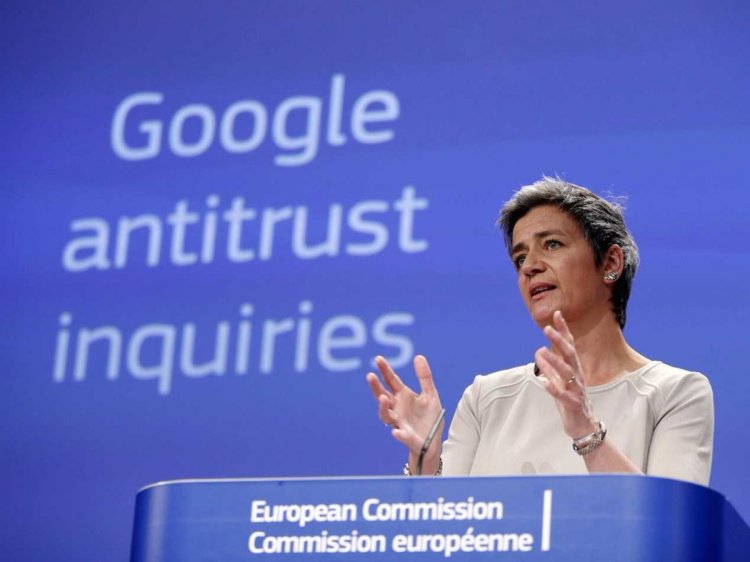testsetset
Google has been fined $1.69 billion by European regulators, who claim the U.S. tech giant abused its dominant position in search to force third-party sites to favor its own ad network while freezing out rivals.
This marks the third massive antitrust fine levied against Google by the European Union, which has become increasingly aggressive in its efforts to regulate powerful tech companies.
“Google has engaged in illegal practices when it comes to their search advertising brokering in order to cement its dominant market position,” said European Competition Commissioner Margrethe Vestager at a press conference.
Last year, EU regulators fined Google $5 billion for abusing the dominant position of its Android mobile operating system to favor its own apps. And in 2017, the EU hit Google with a $2.72 billion antitrust penalty for abusing its dominance in search to boost its comparison shopping service.
June 5th: The AI Audit in NYC
Join us next week in NYC to engage with top executive leaders, delving into strategies for auditing AI models to ensure fairness, optimal performance, and ethical compliance across diverse organizations. Secure your attendance for this exclusive invite-only event.
In this latest case, the EU focused on Google’s AdSense business, which lets websites earn money by embedding an advertising or search box on their pages to serve up ads targeting the site’s audience. In previously released statements going back to 2016, the EU said it began the investigation because it believed Google was restricting how those websites could use other ad networks.
In those previous filings, the EU noted that Google had originally required some sites, particularly bigger partners, to use AdSense exclusively if they wanted to use Google’s search box. Later, those terms were modified to allow some ads from competitors if they were placed in less favorable positions on the page, the EU says.
Google eventually dropped these conditions in 2016, which is when the EU formally launched its inquiry. But Vestager noted that Google’s ability to limit or exclude advertising competitors over a decade allowed it to gain a nearly unassailable leadership position, due to the network effects of online ad markets.
“Google’s rivals were unable to grow,” she concluded.
While Google is the world’s leading search engine, it is even more dominant in Europe, where its market share tops 90 percent.
Perhaps to blunt the bad news, Google announced changes to Android, the subject of the second antitrust fine. In a blog post, the company said it would start asking Android users which browsers and search apps they want to use.
The company said it had already made changes in Android licensing by “creating new, separate licenses for Google Play, the Google Chrome browser, and for Google Search. In doing so, we maintained the freedom for phone makers to install any alternative app alongside a Google app.”
But now the company will prompt existing users of Android to make them aware they have other choices besides Google’s stable of apps in order to promote “choice and competition.”
“We’ve always tried to give people the best and fastest answers — whether direct from Google, or from the wide range of specialist websites and app providers out there today,” wrote Kent Walker, Google’s senior vice president of global affairs. “These latest changes demonstrate our continued commitment to operating in an open and principled way.”

